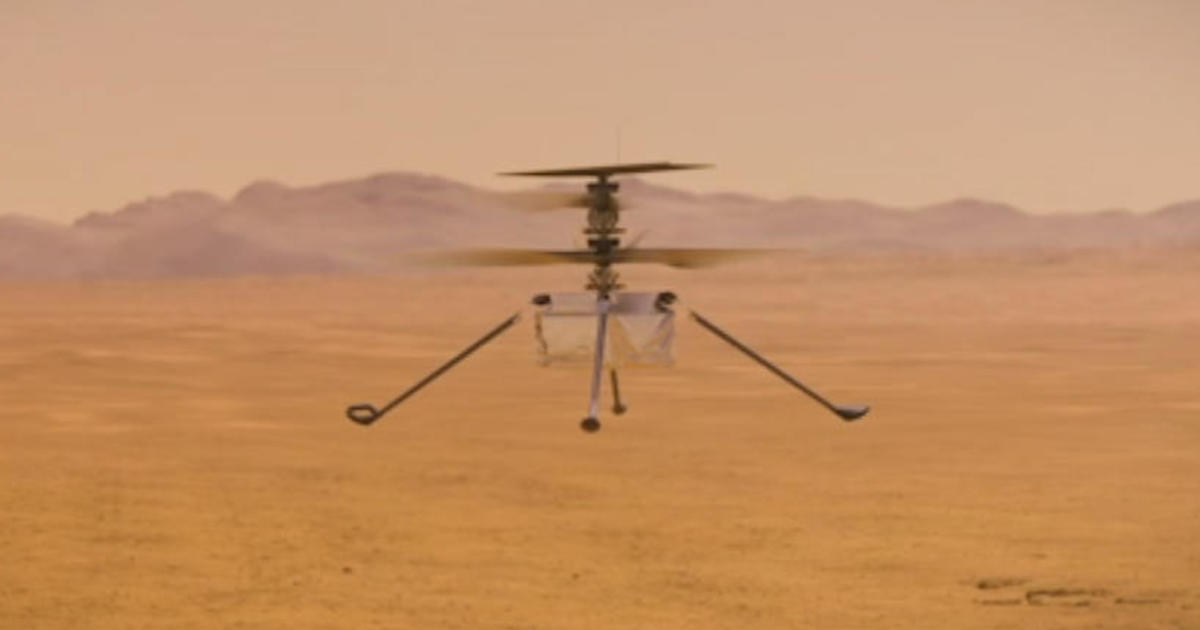So far, so good for the small helicopter that is poised to become the first to fly in outer space. NASA announced that the Mars Ingenuity helicopter is alive and well and was successfully recharged while in mid-spaceflight.
Ingenuity is currently positioned in the belly of the Perseverance rover, which launched last month on a historic mission to the red planet. NASA announced that the rover’s power supply successfully brought the rotorcraft’s six lithium-ion batteries to a charge of 35% — the optimal level to keep the batteries healthy during the cruise to Mars.
“This was a big milestone, as it was our first opportunity to turn on Ingenuity and give its electronics a ‘test drive’ since we launched on July 30,” said Tim Canham, the operations lead for Mars Helicopter. “Since everything went by the book, we’ll perform the same activity about every two weeks to maintain an acceptable state of charge.”
Once Perseverance touches down on Mars, the batteries will be charged by the helicopter’s solar panel, NASA said. If Ingenuity can withstand the cold Martian nights, the team will go forward with test flights.
The Mars Ingenuity helicopter in a NASA video demonstration.
NASA
“This charge activity shows we have survived launch and that so far we can handle the harsh environment of interplanetary space,” said project manager MiMi Aung. “We have a lot more firsts to go before we can attempt the first experimental flight test on another planet, but right now we are all feeling very good about the future.”
The 4-pound helicopter will attempt to fly solo a few months after the rover touches down on Mars. It will first try to rise 10 feet into the planet’s extremely thin atmosphere and fly forward up to 6 feet. With each attempt, it will try to go a little higher and farther.
“It really is like the Wright brothers’ moment,” Aung said last month before the launch.
